Nadir Godrej on the family legacy: 'You ain't seen nothing yet!'
Nadir Godrej was born in 1951, the youngest of two children, to Burjor Godrej. At the dawn of Independence, his father worked for the family business, which was first started in the late 19th century by his granduncle and grandfather Ardeshir and Pirojsha Godrej. The seed of innovation, in the Godrejs, goes back many generations. A wealthy Parsi family from ‘Bombay,’ the genesis of their proto-empire began with Ardeshir Godrej revolutionising the lock-and-safe industry with novel designs and technology. Till today, the Godrej locks and almirahs are a quintessential part of Indian consumer culture. In 1897, a legacy had begun being forged – a legacy that Nadir Godrej and his family would continue to temper more than 50 years later.
It was the year 1959. Nadir Godrej was only eight. Between him and his brother, Adi Godrej, stood a difference of nine years. Adi left for America for his further education, and wouldn’t return until 1963 when Nadir was a boy of 12 years. “I didn’t really spent a lot of time with my brother. But both in the early period and certainly after he came back, he was a big influence in my life.” In 1963, Adi was a young 21-year old man who’d already finished his Bachelor’s and Master’s. Plunging straight into the family business, Nadir proudly says, “He’s been working for 52 years now.” Nadir, on the other hand, due to the steep age gap would only join the business at 26 in 1976 after prestigious education stints at MIT, Standford University and Harvard Business School, earning himself two Master’s degrees. “My brother,” says Nadir, “I would classify as extremely intelligent, but not all that academic. I consider myself less intelligent and more academic.”
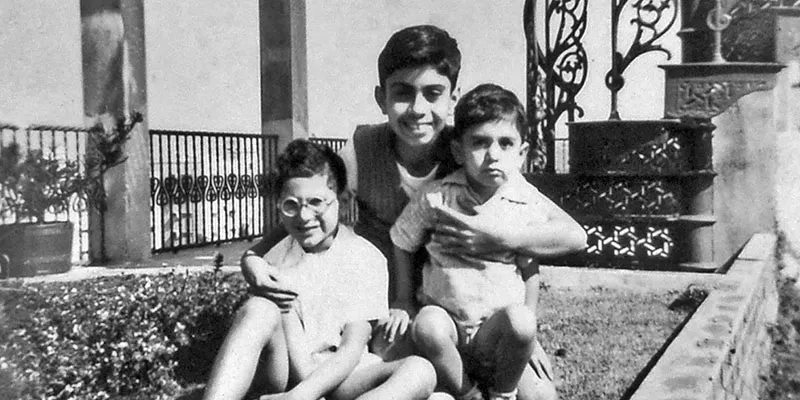
The Godrej’s were an academic family. In 1933, Burjor Godrej, his father, left India to pursue an education in Germany at a time when the Nazi regime was at its peak. Seven years later, in 1939, the British Consulate would summon all Indian students to ship them back home. On the 3rd of September 1939, Burjor found himself in the middle of the Mediterranean Sea, en route to India, with an incomplete education. War had been declared. For the next seven years, even a side-eye glance at Europe was unaffordable. “He always used to tell me, ‘3/9/39.’ But in 1949 he went back after 10 years to finish his PhD. He had 10 years to write his thesis. In Berlin, he was given one month to finish.”
Not all the Godrejs had a passion for the academics, though. Burjor’s brothers had a different scholastic trajectory all together. Sorab Godrej, Nadir’s uncle, did his BSc at the behest of his family, and Naval Godrej joined work right after high school. But Burjor insisted his children to finish both school and college. “He was very much into learning. Apart from science, which he was very good at, he was interested in linguistics and history. He was very deliberate, precise, punctual – very German.” From a very young age, Nadir was deeply influenced by his hardworking, charismatic and threateningly intelligent father. “He taught me a lot about Indo-European languages, which I later studied, too.” Nadir’s interest in linguistics (he can speak six languages fluently), history and geography stems from his father. “I used to pour over his atlases as a child. I can still probably tell you all the capitals of the world.”
It’s a rich childhood with an expensive education. Nadir’s family weren’t wealthy by today’s standards; they were certainly well off, but not without their own hardships. He remembers,
“In America, there were strict forex rules in those days, so I had to live on a very tight budget.”
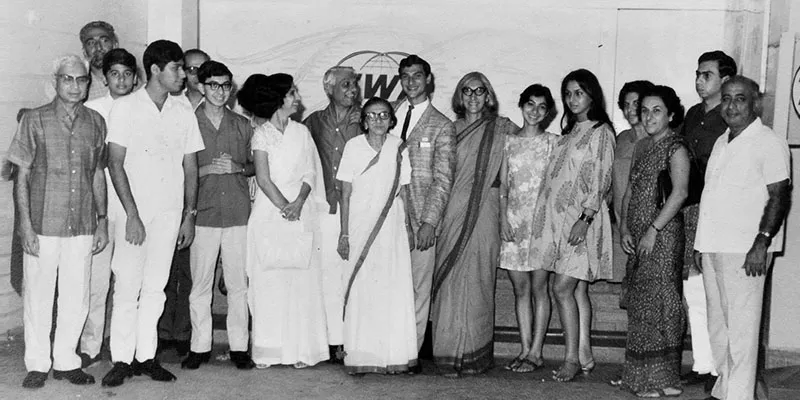
At a very early age, Burjor taught his youngest son chemistry, a subject that would encourage him to read Chemical Engineering at MIT. Even before moving to America, Nadir spent one year at St Xavier’s College reading Chemistry, was accepted into IIT, but transferred to MIT a year later. “In 1973, I worked on a paper with my HOD. He told me to study carbon emissions, which was way ahead of its time. At MIT, I got an exposure into a lot of futuristic things.” A brief spell in biology also brought Nadir to Hargobind Khorana’s labortory.
If there is a regret Nadir has it’s that he didn’t do research at MIT, a cradle of innovation even then. Intel, IDG, Hewlett Packard, Bose and Polaroid, all, came out of MIT.
All this exposure, and the scientific curiosity his father instilled in him, reflects in the way the Godrej business functions today, at the forefront of innovation and change.
However, it wasn’t just the men in Nadir’s life that impacted him. His mother, Jai Godrej, had a profound influence on him, too. “She was an English teacher, quick and intelligent like my brother.” In the mid-1960s, Jai joined summer school in the University of Oregan to read Child Psychology. “She was an excellent psychologist and teacher.” Nadir remembers helping her mother correct papers for her classes. He says, “She ran her class with full freedom. She was like a ring master; it was a circus.” His mother, like her own mother, was a poetry enthusiast. During India’s struggle for independence, Nadir’s grandmother would publish poems for magazines, which she would recite to him, a memory still dear to him. Even Jai would have her short stories published later. “It was quite a literary family,” says Nadir.
“I even did a little bit of acting at MIT, and that helped me recite my poetry. I think of this more as performance art than literature. It was a bit like slam poetry. At one time, you must remember, all literature was verse!”
Nadir’s written poems about both his uncles, too. One particular poem, The Captain, recounts Naval Godrej’s life. He says Naval, once, had been stabbed by ‘80s union leader Dutta Samant’s henchmen. Having lost too much blood, a timely transfusion had saved him. But tragically, as fate would have it, 10 years later, the very same transufsion would kill him due to a disease the donor had carried.
On his head, one would think, Nadir carried the bittersweet burden of a legacy sans pareil. But he says otherwise. “My mother always encouraged me to do something independent from the business. I was even thinking of pursuing further academics.” And Nadir would have. But the year was 1975.
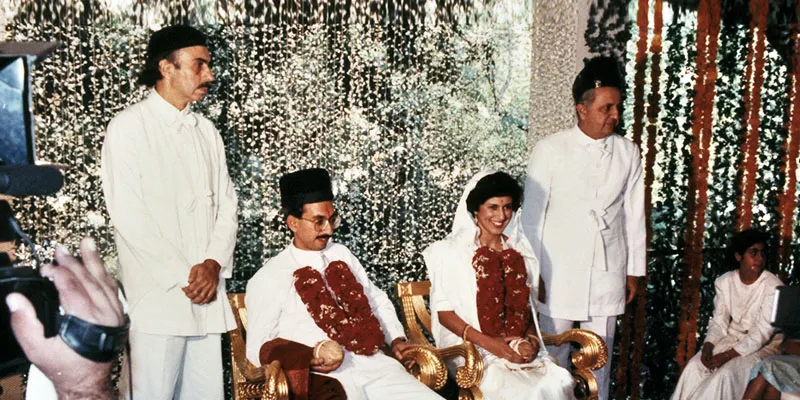
A family call, and new beginnings
In 1976, Nadir returned to India. It would be another year before the Emergency imposed by then-Prime Minister of India, Indira Gandhi, would cease. At the height of Emergency, Adi had called him and said, “I really need you. Come back.” It was all Nadir needed to hear to return home. “That was the first time,” he says, “that there was really a call from the family.” He continues, “It was an interesting time to come to India.”
The Godrej business had already begun to grow leaps and bounds once his brother joined it. But the real boom took place in 2000 after stringent liberalisation loosened the chokehold the Indian government had on businesses. India had finally walked out of the Fabian grave it had dug for itself, and that meant growth for Godrej.
After years of struggle, experimentation and expansion, the Godrej Group has expanded into Godrej Industries, Properties, Consumer Products, Agrovet, Nature’s Basket, Infotech, Efacec Automation and Robotics, Godrej & Boyce and independent company Geometric.
It's easily one of India’s biggest corporate empires, none of which would have been possible if it weren’t for the inherently entrepreneurial nature of its leaders in a country averse to business. Nadir says,
“The big advantage is not that we had a big business to start with, but the groundwork and the management structure.”
Innovation and design thinking are at the core of Godrej’s philosophy, whether it’s Agrovet or GCPL research centres littered across India. “We also collaborate with outside agencies, because we don’t think everything can and should be invented by us. We aren’t too dependent on outside agencies, except where they have expertise that we don’t- such as basic scientific knowledge.” And Nadir isn’t a man who hesitates to venture into new avenues of research, development, technology, acquisitions, investments and businesses. His niece, Nisa Godrej, Executive Director of Godrej Consumer Products and board member GCPL, Godrej Agrovet and Teach for India, recently initiated the Good and Green programme to promote employalibity in the agriculture industry, to become carbon neutral by 2020 and to adopt renewable energy. “At that time,” says Nadir, “It looked like a tall order. But, now, solar energy costs are really coming down. Already commercial solar energy is being sold at Rs 5, which was Rs 15 three years ago. Coal cost gone up from Rs 2.5 to Rs 4 now. So you can see that things are converging.
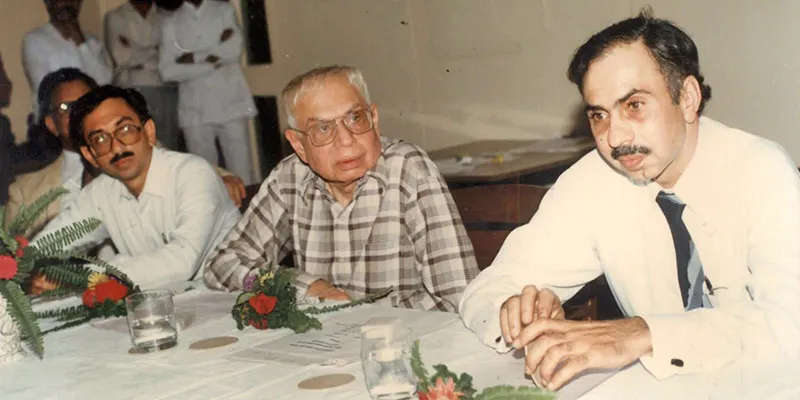
“But because of our focus on green energy and trying to be carbon neutral, we’ve actually reduced costs a lot. I like to track science and any scientific development likely to help in the business, or even carefully study things like green energy, which only have a peripheral impact on our business.” And like a geek in true fashion, Nadir Godrej derives all his inspiration from science and voraciously reading online than meeting people. But he still feels that, for an agrarian economy (by employment), we’re terribly behind the times and lack rigorous and serious innovation. He, however, adds,
"If nobody will provide it, I will provide it. The Godrej Group is committed to increasing investments in providing innovation to this field. We think, on the back of this kind of innovation, we can grow very rapidly.” He continues, “Any kind of R&D -other than the IT sector- has a gestation period. The innovations are not so slow, but it still takes one or two years to get good innovation out.”
And in that respect, he genuinely feels young employees and entrepreneurs will drive innovation faster. Their LOUD programme is reflective of that. Initially started to capture the best of management graduates, it evolved into a scheme to help young Indians plan their dreams. Each year, Godrej awards LOUD prizes, whether it’s for a dream to sky dive or start an NGO, to at least five employees. The Godrej Culture Lab, on the other hand, was started to help employees get seriously engaged in their personal and professional lives.
“If they can bring their passion to work and improve the business," says Nadir, "then more power to them.”
In 2013, former Agrovet Executive Mark Kahn persuaded Nadir to set up Omnivore, a venture fund to assist sustainable, innovative and efficient agro-enterprises.
“These companies are not necessarily in synergy to the Godrej Group’s efforts. bBt we have that option open. We don’t stop them from investing in companies which are unlikely to have strategic influence as long as they are likely to make them fund more money.”
Still cautious of the chaotic and wildly thriving startup industry, Nadir says,
“The trouble with high growth rates is your value depends on how long you can sustain that growth rate, and nobody knows that. These valuations are bound to be volatile and scary, but not necessarily absurd. You can bet that at least some of those valuations are absurd, but can’t bet that all of them are absurd. After the event you know if it was irrational or not; before the event, it's hard to say.”
Caution aside, Nadir still believes that startups are revolutionary and add value to the system and every day lives. He adds, “At this stage, I don’t know how much macroeconomic value they are providing. One thing they might be doing is keeping inflation in check, because they are selling everything so cheap. That feeds back into the economy. We may be systematically overestimating our inflation. How do you take mobile phones into account when 20 years ago you sold them at a much higher price, but sold few of them?”
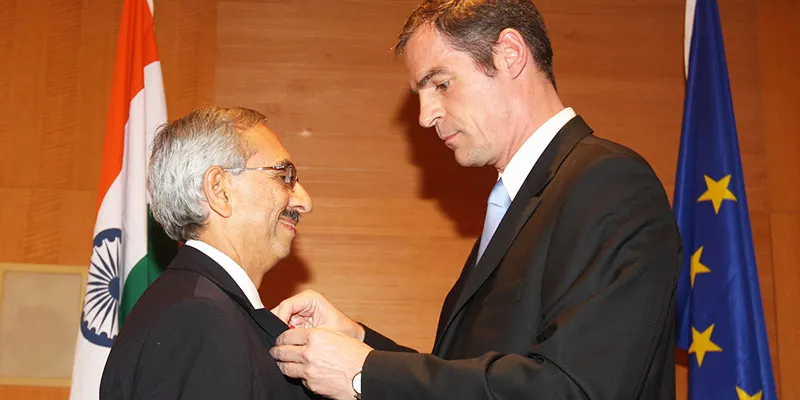
Nothing has been more fundamental than the digital space to create this paradigm shift in the way people live, work and start enterprises. In a deal valued at ~INR 40 crore, even Godrej, earlier this year, in an attempt to help Nature’s Basket tap into the digital marketplace, acquired e-commerce platform Ekstop. Nadir says, “We’ll restrict ourselves to spaces we understand well. If a lot of people come into the field, we may not see the necessity of us staying there.”
Whether Godrej will exploit the digial marketplace and integration to its full capacity is still doubtful. Nadir says, “We are at least getting a centralised group looking at what each business is doing- trying to see if we can use common platforms where possible. We do have Nature’s Basket, Godrej Tyson, Godrej Interio. The integration is headed by Ms. Tanya Dubash through the Strategic Marketing Group (SMG). We will try and do more of those, and these linkages will mostly be digital. I don’t think we’ve got it right, but, from the centre, all the businesses want to do it on their own, and I’m trying to push them to do it together.”
With so much constantly changing, it’s harder than ever for old giants to not just stay relevant, but maintain their legacy. Nadir says he wants to share his with the whole Godrej empire and the world. “We want to be environmentally sound. We want to do good for society. We want to be almost like a social enterprise. Personally, I want to make a big contribution to solving climate change and feeding the planet sustainably.
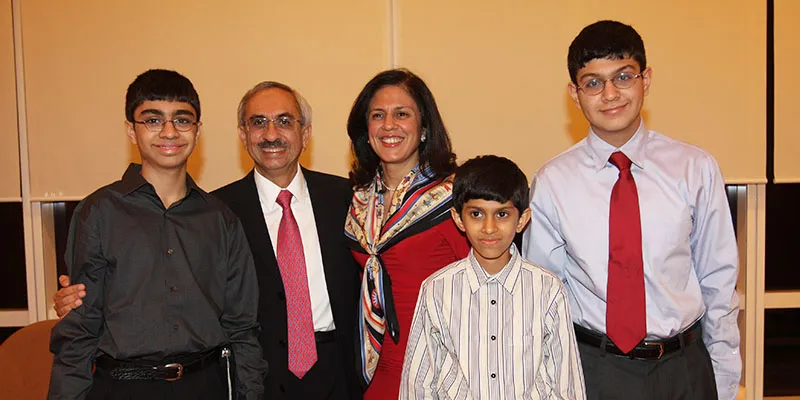
“And I do get impatient, because I see real good success after nine or ten years. And I’m 63. One of my challenges is firing the belly of my team, so I really have to push them. They’re happy growing at 20 per cent, and I have to prod them to grow at double the rate.”
To Nadir Godrej, a true leader needs to inspire. He needs to walk the talk. As to where he’s headed with Godrej, he mirthfully chirps,
“You ain’t seen nothing yet.”







